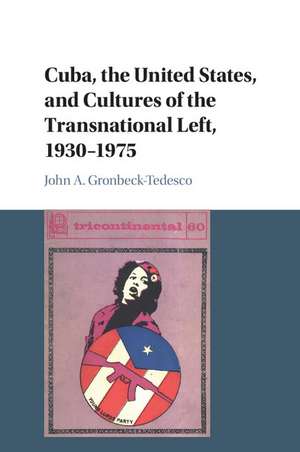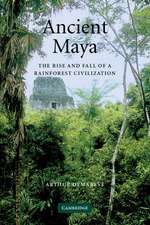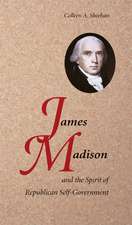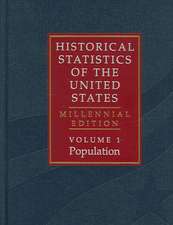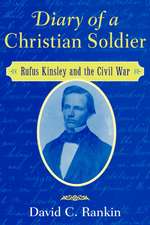Cuba, the United States, and Cultures of the Transnational Left, 1930–1975
Autor John A. Gronbeck-Tedescoen Limba Engleză Paperback – 30 aug 2017
| Toate formatele și edițiile | Preț | Express |
|---|---|---|
| Paperback (1) | 287.66 lei 6-8 săpt. | |
| Cambridge University Press – 30 aug 2017 | 287.66 lei 6-8 săpt. | |
| Hardback (1) | 696.60 lei 6-8 săpt. | |
| Cambridge University Press – 19 oct 2015 | 696.60 lei 6-8 săpt. |
Preț: 287.66 lei
Nou
Puncte Express: 431
Preț estimativ în valută:
55.04€ • 57.62$ • 45.54£
55.04€ • 57.62$ • 45.54£
Carte tipărită la comandă
Livrare economică 05-19 aprilie
Preluare comenzi: 021 569.72.76
Specificații
ISBN-13: 9781107443617
ISBN-10: 110744361X
Pagini: 304
Ilustrații: 9 b/w illus.
Dimensiuni: 153 x 230 x 18 mm
Greutate: 0.45 kg
Editura: Cambridge University Press
Colecția Cambridge University Press
Locul publicării:New York, United States
ISBN-10: 110744361X
Pagini: 304
Ilustrații: 9 b/w illus.
Dimensiuni: 153 x 230 x 18 mm
Greutate: 0.45 kg
Editura: Cambridge University Press
Colecția Cambridge University Press
Locul publicării:New York, United States
Cuprins
Introduction; 1. Remapping 'our America': US-Cuban transnational history; 2. Documenting the 'crime of Cuba': the US-Cuban transnational left and the 1933 revolution; 3. Good or bad neighbors? Pan-American culture and the 1933 Cuban Revolution; 4. Race and revolution in verse: US-Cuban diasporic culture and politics; 5. The making of revolutionary exceptionalism: (post)modernization and remixing the cultural left; 6. Race and the Cuban Revolution in the post-Bandung era; 7. From suffragists to soldiers: revolutionary womanhood and gendered citizenship; Conclusion.
Recenzii
'This is a wonderfully bold sweep through the history of US–Cuban cultural, literary, and political relations from the early 1930s to the 1960s, emphasizing lengthy transnational commitments to radicalism, revolution, and solidarity. Its interdisciplinary approach and innovative use of popular culture, music, poetry, and politics internationalizes US history in novel ways that will make the book obligatory reading for students of American studies and Latin American history.' Barry Carr, La Trobe University, Victoria
'This book not only covers a considerable amount of ground - across several decades and different cultural genres, as well as different social and even ideological issues - but does so with a commendable degree of subtlety. That latter attribute is something always to be welcomed in writing on Cuba, a field too often bedeviled by easy generalizations, misleading preconceptions, and distorting assumptions. Here, however, the author has handled the material very intelligently and subtly, and in a remarkably balanced and objective way, showing an unusual degree of sensitivity to both 'sides' of the essential relationship being discussed and also - again something unusual in work on Cuba - showing a welcome willingness to use Cuban sources and take them at face value and not filtered through a priori assumptions.' Antoni Kapcia, University of Nottingham
'This is an excellent example of what transnational history should be. The book is written in a style that makes it accessible to experts and non-experts alike. John A. Gronbeck-Tedesco is very successful in weaving Cuba's complex history with that of the United States, and his use of sources, both primary and secondary, is truly impressive, especially given the challenge of working with both Cuban and US sources. Gronbeck-Tedesco deserves credit for making a significant new contribution to Cuban and US history, transnational scholarship, and Latin American and Caribbean studies.' Robert Whitney, University of New Brunswick
'Through a wide array of cultural expressions, ranging from photography, poetry, travel books, and music, Gronbeck-Tedesco is able to illustrate his argument in a clear and powerful way. More importantly, he is also able to bring some of those elements to contemporary times, with the examination of Wyclef Jean's Guantanamera. This is an important book to read to better comprehend how the Cuban Revolution of 1959 came about and what it meant, but also how it shaped the culture of the island and of the 'left' beyond the traditional discourse of 'socialism/communism vs capitalism' that marked the Cold War.' Santiago Baruh, Washington Report on the Hemisphere
'[This book] bridges the Cuban revolutions of 1933 and 1959. It describes, in illuminating detail, the collaboration between leftists in the U.S. and Cuba in the radical politics and cultural experimentation of those years … Gronbeck-Tedesco's industrious historical research is quite evident not only in his account of the U.S. and Cuban left collaborative efforts, but also in some of the various fascinating side topics that he pursues, such as the evolution of the emblematic Cuban song 'Guantanamera' (186–197).' Samuel Farber, The American Historical Review
'… historians interested in transnational activism and the political and cultural history of the Left will find this an enlightening and compelling book. Gronbeck-Tedesco's sensitivity to the anti-imperial roots of the Cuban revolution enables him to produce an exceptionally thoughtful analysis of the way North Americans so often failed to recognize their own neocolonial assumptions. His discussion of the shortcomings of that revolution, and the biases that US visitors brought with them, moreover, demonstrates the barriers that prevented a deeper kind of solidarity.' Michael E. Latham, Journal of Cold War Studies
'This study's particular strength is its linking the Cuban Revolutions of the mid–1930s and late–1950s, vaulting nimbly over the Cold War divide, which few authors (including myself) have thought to do.' Van Gosse, The Journal of American History
'John A. Gronbeck-Tedesco examines the exchanges between US and Cuban intellectuals in two key political moments in the history of Cuba: the 1930s and the Cuban Revolution. … Although the author focuses on the dialogue among activists and intellectuals from both countries, he places greater emphasis on how the Cuban experience affected the Left in the United States …' Also Marchesi, Journal of Latin American Studies
'John A. Gronbeck-Tedesco's Cuba, the United States, and Cultures of the Transnational Left, 1930–1975 provides several fresh perspectives notable to scholars working on the origins and trajectories of Cuban and American exceptionalism.' Lisa M. Corrigan, Journal of American Studies
'The past few years seem to have inaugurated a transnational turn in the growing scholarship on Cuba's 1959 revolution. John Gronbeck-Tedesco's Cuba, the United States, and Cultures of the Transnational Left is a welcome addition to this trend … As this book shows convincingly, US-Cuban conversations could be deeply productive even if discordant.' Michelle Chase, Cuban Studies Review
'In tracing this history of transnational connectivity, the book produces an intimate portrait of African-American revolutionaries, feminist activists, proletarian writers, transnational exiles, dissidents, and artists, all of whose accounts challenge views of nation and nationalism as separate constructs of collective identity.' Luis Roniger, The Americas Journal
'This book not only covers a considerable amount of ground - across several decades and different cultural genres, as well as different social and even ideological issues - but does so with a commendable degree of subtlety. That latter attribute is something always to be welcomed in writing on Cuba, a field too often bedeviled by easy generalizations, misleading preconceptions, and distorting assumptions. Here, however, the author has handled the material very intelligently and subtly, and in a remarkably balanced and objective way, showing an unusual degree of sensitivity to both 'sides' of the essential relationship being discussed and also - again something unusual in work on Cuba - showing a welcome willingness to use Cuban sources and take them at face value and not filtered through a priori assumptions.' Antoni Kapcia, University of Nottingham
'This is an excellent example of what transnational history should be. The book is written in a style that makes it accessible to experts and non-experts alike. John A. Gronbeck-Tedesco is very successful in weaving Cuba's complex history with that of the United States, and his use of sources, both primary and secondary, is truly impressive, especially given the challenge of working with both Cuban and US sources. Gronbeck-Tedesco deserves credit for making a significant new contribution to Cuban and US history, transnational scholarship, and Latin American and Caribbean studies.' Robert Whitney, University of New Brunswick
'Through a wide array of cultural expressions, ranging from photography, poetry, travel books, and music, Gronbeck-Tedesco is able to illustrate his argument in a clear and powerful way. More importantly, he is also able to bring some of those elements to contemporary times, with the examination of Wyclef Jean's Guantanamera. This is an important book to read to better comprehend how the Cuban Revolution of 1959 came about and what it meant, but also how it shaped the culture of the island and of the 'left' beyond the traditional discourse of 'socialism/communism vs capitalism' that marked the Cold War.' Santiago Baruh, Washington Report on the Hemisphere
'[This book] bridges the Cuban revolutions of 1933 and 1959. It describes, in illuminating detail, the collaboration between leftists in the U.S. and Cuba in the radical politics and cultural experimentation of those years … Gronbeck-Tedesco's industrious historical research is quite evident not only in his account of the U.S. and Cuban left collaborative efforts, but also in some of the various fascinating side topics that he pursues, such as the evolution of the emblematic Cuban song 'Guantanamera' (186–197).' Samuel Farber, The American Historical Review
'… historians interested in transnational activism and the political and cultural history of the Left will find this an enlightening and compelling book. Gronbeck-Tedesco's sensitivity to the anti-imperial roots of the Cuban revolution enables him to produce an exceptionally thoughtful analysis of the way North Americans so often failed to recognize their own neocolonial assumptions. His discussion of the shortcomings of that revolution, and the biases that US visitors brought with them, moreover, demonstrates the barriers that prevented a deeper kind of solidarity.' Michael E. Latham, Journal of Cold War Studies
'This study's particular strength is its linking the Cuban Revolutions of the mid–1930s and late–1950s, vaulting nimbly over the Cold War divide, which few authors (including myself) have thought to do.' Van Gosse, The Journal of American History
'John A. Gronbeck-Tedesco examines the exchanges between US and Cuban intellectuals in two key political moments in the history of Cuba: the 1930s and the Cuban Revolution. … Although the author focuses on the dialogue among activists and intellectuals from both countries, he places greater emphasis on how the Cuban experience affected the Left in the United States …' Also Marchesi, Journal of Latin American Studies
'John A. Gronbeck-Tedesco's Cuba, the United States, and Cultures of the Transnational Left, 1930–1975 provides several fresh perspectives notable to scholars working on the origins and trajectories of Cuban and American exceptionalism.' Lisa M. Corrigan, Journal of American Studies
'The past few years seem to have inaugurated a transnational turn in the growing scholarship on Cuba's 1959 revolution. John Gronbeck-Tedesco's Cuba, the United States, and Cultures of the Transnational Left is a welcome addition to this trend … As this book shows convincingly, US-Cuban conversations could be deeply productive even if discordant.' Michelle Chase, Cuban Studies Review
'In tracing this history of transnational connectivity, the book produces an intimate portrait of African-American revolutionaries, feminist activists, proletarian writers, transnational exiles, dissidents, and artists, all of whose accounts challenge views of nation and nationalism as separate constructs of collective identity.' Luis Roniger, The Americas Journal
Notă biografică
Descriere
This book examines how Cuba's revolutions of 1933 and 1959 became touchstones for border-crossing endeavors of radical politics and cultural experimentation over the mid-twentieth century.
